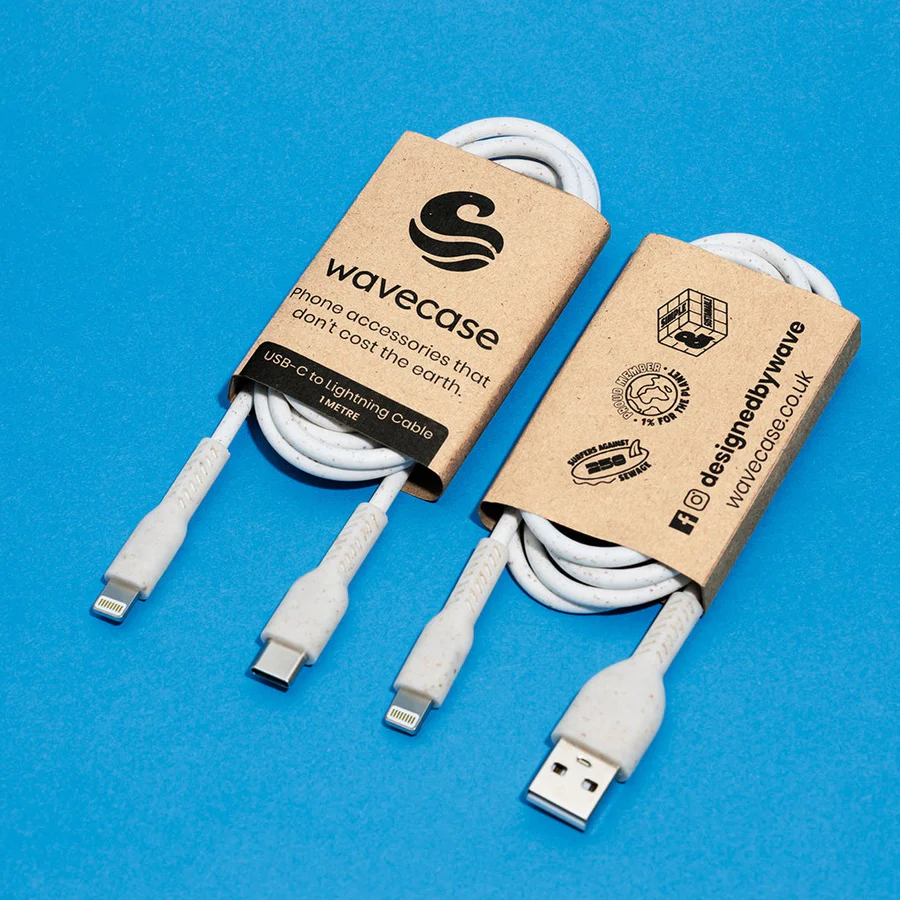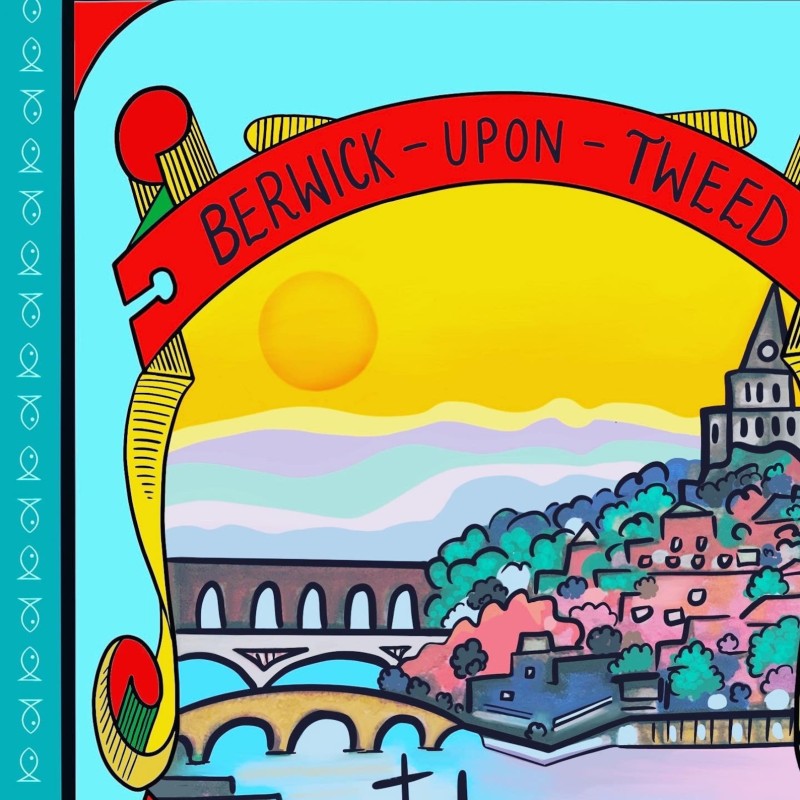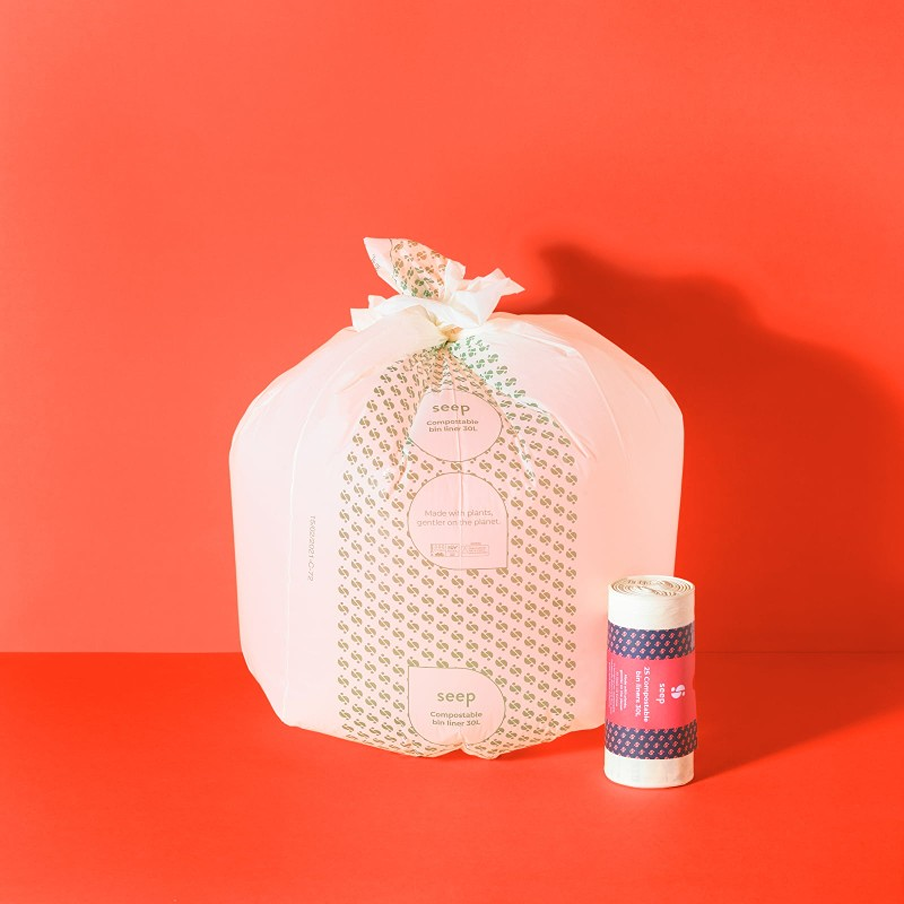Zero Waste Shops (reasons to support them)

RefillAbell (Watford)
The popularity of zero waste living keeps growing. From swapping disposable plastic for reusable products to shopping package-free, people in England want to make real change on their doorstep. Cutting single-use waste doesn’t just help the planet; it supports local independent shops, builds stronger communities and encourages small businesses leading the eco movement.
This guide shares what zero waste shops offer, how they work, and how you can make the most of these local heroes.
As most zero waste shops sell food, beauty, cleaning and candles:
- Read up on food safety for people and pets (it’s best to bin bin allium scraps (onion, leeks, garlic, shallots, chives) along with rhubarb, tomato and citrus scraps, as acids may harm compost creatures.
- Choose unscented beauty, cleaning and laundry products for pregnancy/nursing and near babies/pets (and read our post on candle safety).
- If growing food, read up on pet-friendly gardens and wildlife-friendly gardens (avoid facing indoor plants to gardens, to help stop birds flying into windows).
Some zero waste shops sell pet food, this is a complicated subject due to various ethics, mixed with the nutritional needs of animal companions. Read our post on quality pet food (in consultation with your vet).
How Do Zero Waste Shops Work?
Zero waste shops aim to reduce waste at the source. Their main goal is simple: cut down on packaging and single-use plastics by encouraging people to refill and reuse. Unlike typical supermarkets filled with shrink-wrapped goods, zero waste shops use refill systems, bulk bins and a tare weight process.
This hands-on shopping experience puts you in control of what you need and how much you bring home.
Zero waste shops stand out for a few reasons:
- Bulk buy sections for rice, pasta, shampoo, laundry powder etc.
- A focus on plastic-free swaps (think: bamboo toothbrushes, food wraps)
- Friendly, knowledgeable staff with waste-reducing tips
A few zero waste shops in London
- Art of Zero Living (Greenwich)
- Weigh and Pay (Brixton)
- Gather (Peckham/Southwark/Lewisham)
- Kilo (Holloway)
- Jar Market (Herne Hill & Stoke Newington)
Refill Systems Explained
Most zero waste shops run a simple refill system. Bring your containers (old jars, bottles or tins work fine). Some shops have a ‘take a jar, leave a jar’ shelf for those who forget. You weigh your empty container, fill it with what you need – whether oats or washing up liquid – and pay by weight.
There’s no extra packaging waste, and you only buy as much as you need. This method keeps your cupboards tidy, saves money, and shrinks your rubbish pile at home.
Bulk refill stations usually stock:
- Grains, pasta, lentils, cereals
- Nuts, seeds, dried fruit
- Baking goods
- Cleaning liquids (washing up liquid, detergent)
- Shampoo, conditioner, shower gel
Bringing your own container means you avoid unnecessary packaging and plastic, reducing pressure on local waste collection and recycling schemes.
Understanding the Tare Weight System
If you visit a zero waste shop, it’s likely using the tare weight system. It’s good to know how it works, so you can save money by taking your own packaging, which also helps to reduce plastic waste.
Around 30% of the price of most goods in supermarkets is due to packaging. So if you buy your daily essentials from zero waste shops, often the price is a third cheaper. We’re talking everything from lentils to rice to herbs and spices.
Tare weight is that of the empty container, before you add the contents. That means that when you take along your clean dry containers (or use ones sold in zero waste stores), this is subtracted from the gross weight of the final contents, to ensure that you are not paying for the empty packaging that you own.
Most modern zero waste shops then print labels with the tare weight and a barcode, for easy scanning at the checkout. Learn where to buy scales for zero waste shops.
For more info on helping your shop to use tare weight systems, visit UnPackaged, which runs a consultancy for both small shops and supermarkets (along with online stores).
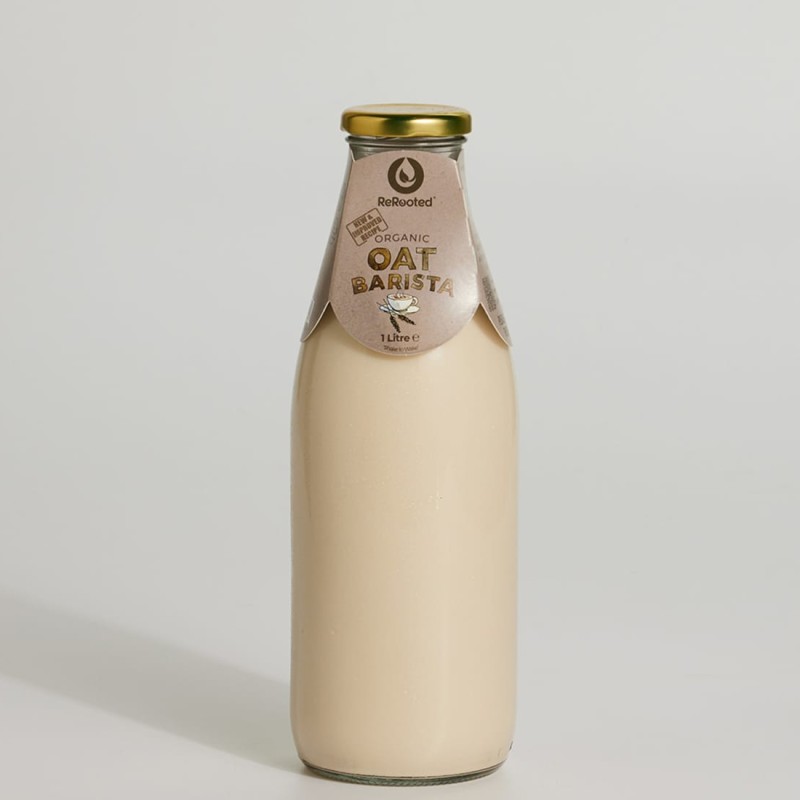
It helped Abel & Cole to launch their Club Zero. Customers rinse their empty bottles and screw the lids on, then put them next to their organic fruit and veg boxes, for collection, refill and reuse.
Brands including ReRooted (organic plant milks in glass bottles) and Miniml (an eco-friendly cleaning range made with Yorkshire water) are involved.

Shopping in bulk is more than a trend. Bulk buying in zero waste shops means fewer single-use packs, less food waste, and a lower shopping bill in the long run. Most shops stock:
- Cereals, grains, pulses, pasta
- Spices, herbs, loose-leaf tea, coffee beans
- Dried fruit, nuts, snacks
- Household cleaners in refillable bottles
- Bath and beauty products (like lotion, shampoo, hand soap)
The choice can surprise newcomers. Want one scoop of cumin instead of buying a big jar? Easy. Need just enough rice for dinner? No problem. By letting you choose small or large amounts, zero waste shopping helps cut waste at home and encourages a more thoughtful approach to what you buy and use.
Benefits of Shopping Bulk in Zero Waste Shops:
- Save money by buying only what you need
- Cut down on food and packaging waste
- Try new products without commitment
- Reduce carbon footprint thanks to fewer deliveries and less packaging
The Refill Shop of Ikigai is St Ives’ very own zero waste shop. The name translates as ‘a reason for being, a purpose, a meaningful life’. Just take along your clean containers, and fill up on daily essentials. The shop was founded after the pandemic by vegans, who wished to do something even more to help the planet.
Pebble Magazine has a good list of zero waste shops in England, Wales and Scotland.
The Clean Kilo (Birmingham)

The Clean Kilo (Birmingham) is England’s largest zero-waste supermarket. Situated in Bourneville, it’s beautifully fitted out with a deli, chilled plant milk dispensers and machines to make your own orange juice and peanut butter.
Most food is organic from local artisan producers, bought in bulk to build strong relationships and good income for small suppliers. Even crisps arrive in packaging-free containers from nearby Staffordshire.
Two Mobile Zero Waste Shops
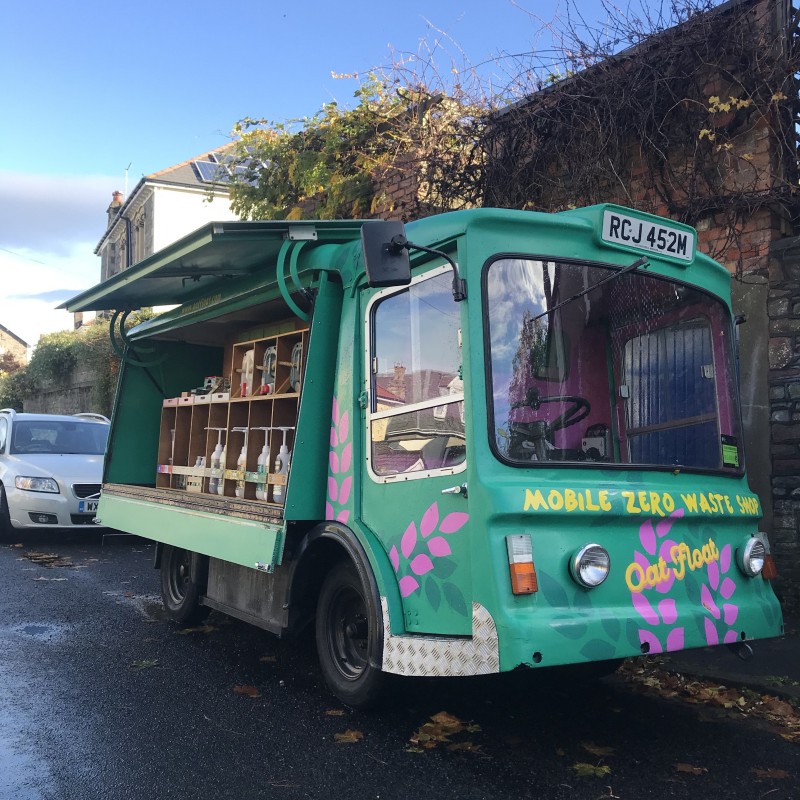
Oat Float is a quirky 70s vintage milk float, that has been developed into a mobile zero waste shop in Bristol, doing the rounds to deliver plastic-free daily essentials. Customers can buy pantry staples like pasta and porridge oats to eco beauty and household items.
Incredible Bulk (Cornwall) delivers to several villages in this rural but fairly small county, so it’s likely the van will be visiting near you at some time or another. Their converted van travels through Cornwall, turning up at village halls and markets.
Why Use a Mobile Zero Waste Shop?
- Reach rural or remote areas with no local shop
- Reduce car journeys for customers
- Support small regional suppliers
- Build community through regular visits
Zero Green (Bristol)
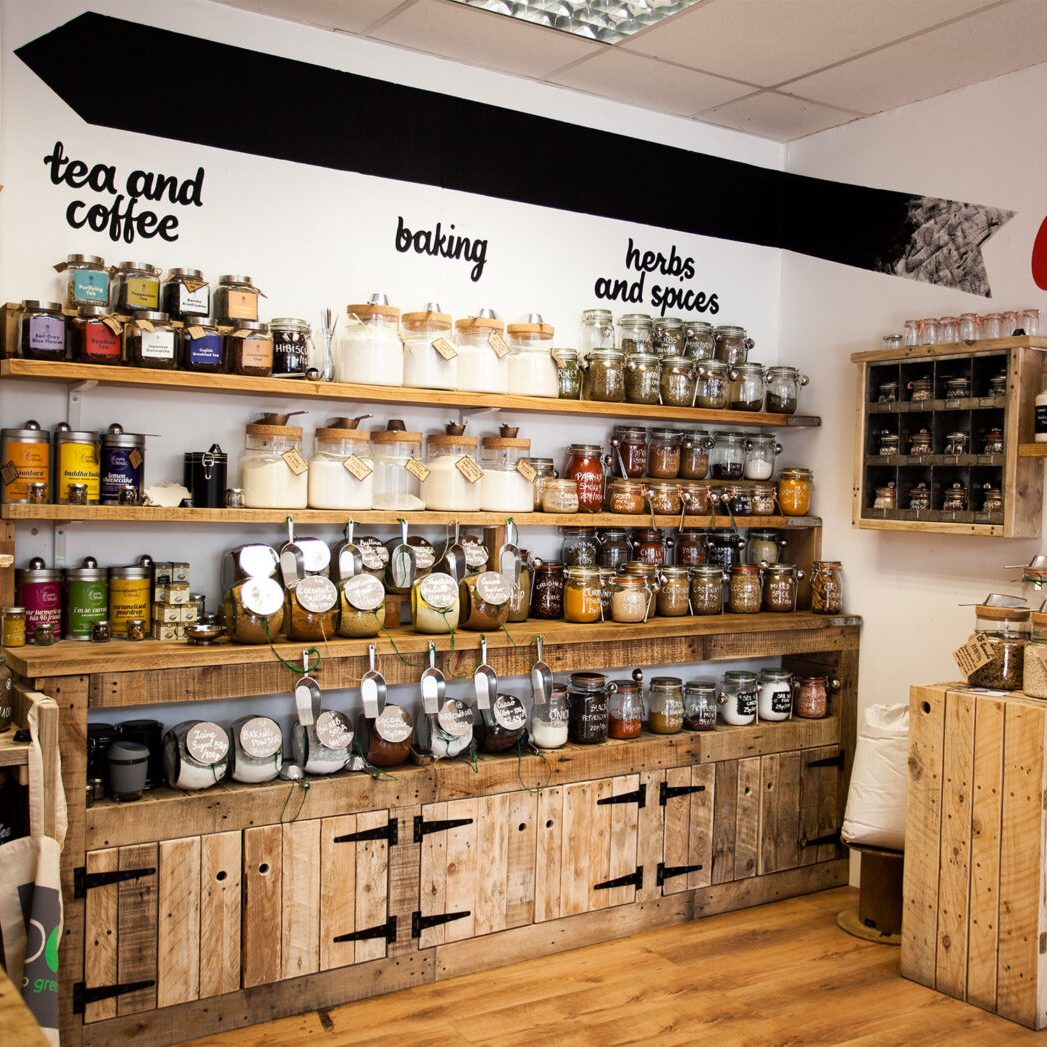
Zero Green (Bristol) not only sells zero waste staples. But if you have a coffee at their shop, you can eat the cup as it’s edible! It tastes a bit like a thick ice-cream cone and the drink will keep for around 40 minutes, before the ‘cup goes soggy’ (the paper sleeve holder is then recycled).
Earth. Food. Love (Devon)
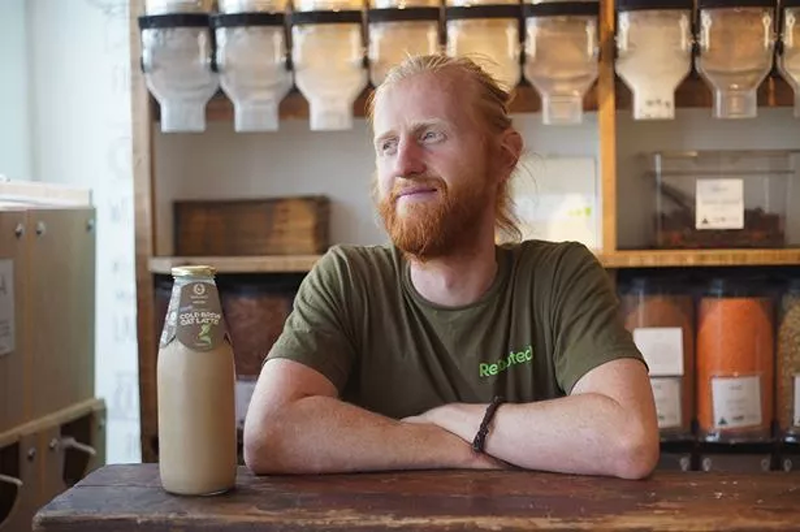
Earth. Food. Love (Devon) was England’s first zero waste shop, and the founder is also co-founder of ReRooted organic plant milks (sold in returnable glass bottles). This shop was founded (with his wife) by a former Manchester United footballer. Who says if you told him that he would give up a lucrative career in his late 20s to become a shopkeeper, he never would have believed you!

This lovely couple have even created a free downloadable e-book (pdf) to help anyone set up their own similarly successful zero waste shop. It covers everything from location and products, to marketing, pricing, hygiene and payment methods.
In an interview, it’s interesting that the founders say they opened the shop first, then gradually became zero waste, inspired by a similar shop in Berlin. It shows that nobody has to be perfect. Just aspiring to do their best.
It’s only one straw – said 8 billion people. Benjamin Von Wong
Four Zero Waste Shops in Brighton
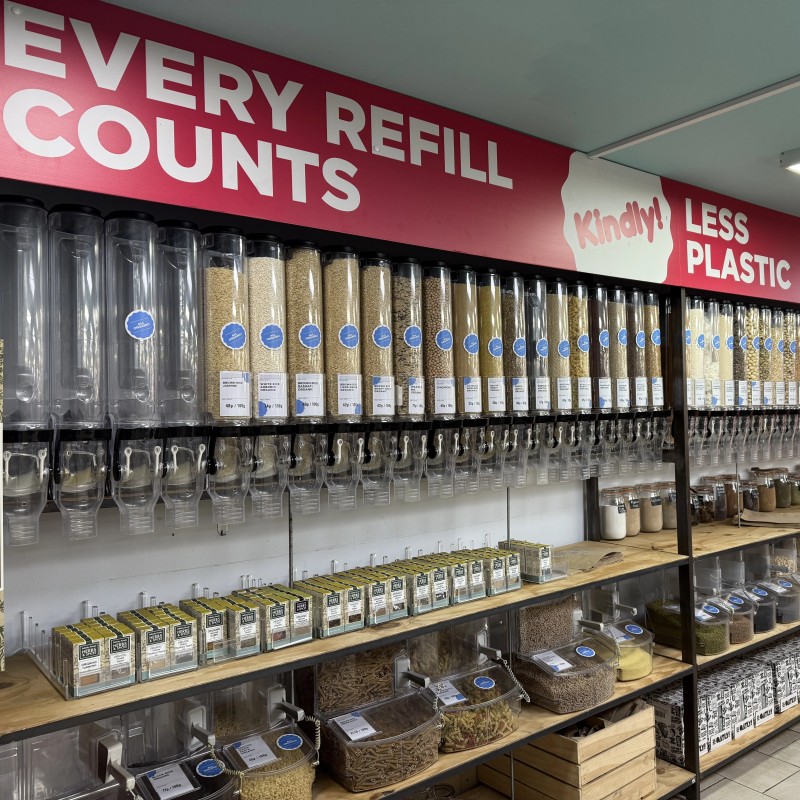
Kindly is a vegan supermarket with big plan. Most items are organic, locally-sourced and in plastic-free packaging. It also offers a loyalty card and delivery for local customers, as well as an online shop nationwide.
The store was founded by a bored Internet entrepreneur during the pandemic, who wished to use his success to do something good. With two stores already, there are plans to open five more stores in five years.
Harriet’s of Hove is a plant-based refill shop, offering a wide choice of organic foods and eco household products. Just like big supermarkets, you can order ‘click-and-collect’ service or local delivery. The shop is run by a nurse and dentist (‘Mr Harriet!’) But instead of giving you a filling, he gives you a re-fill!
Infinity Foods is a co-operative that’s been around since the 70s, with its own successful wholesale department too. These days the plastic packs of lentils are being replaced by loose foods in refill stations, to sell alongside their local organic loose fruits and vegetables. And runs its own Community Card for discounts.
Hunglish is an award-winning zero waste shop, offering both in-store service and online shopping (with free local delivery). It even has a cosy coffee corner.
Unicorn Grocery (Manchester)
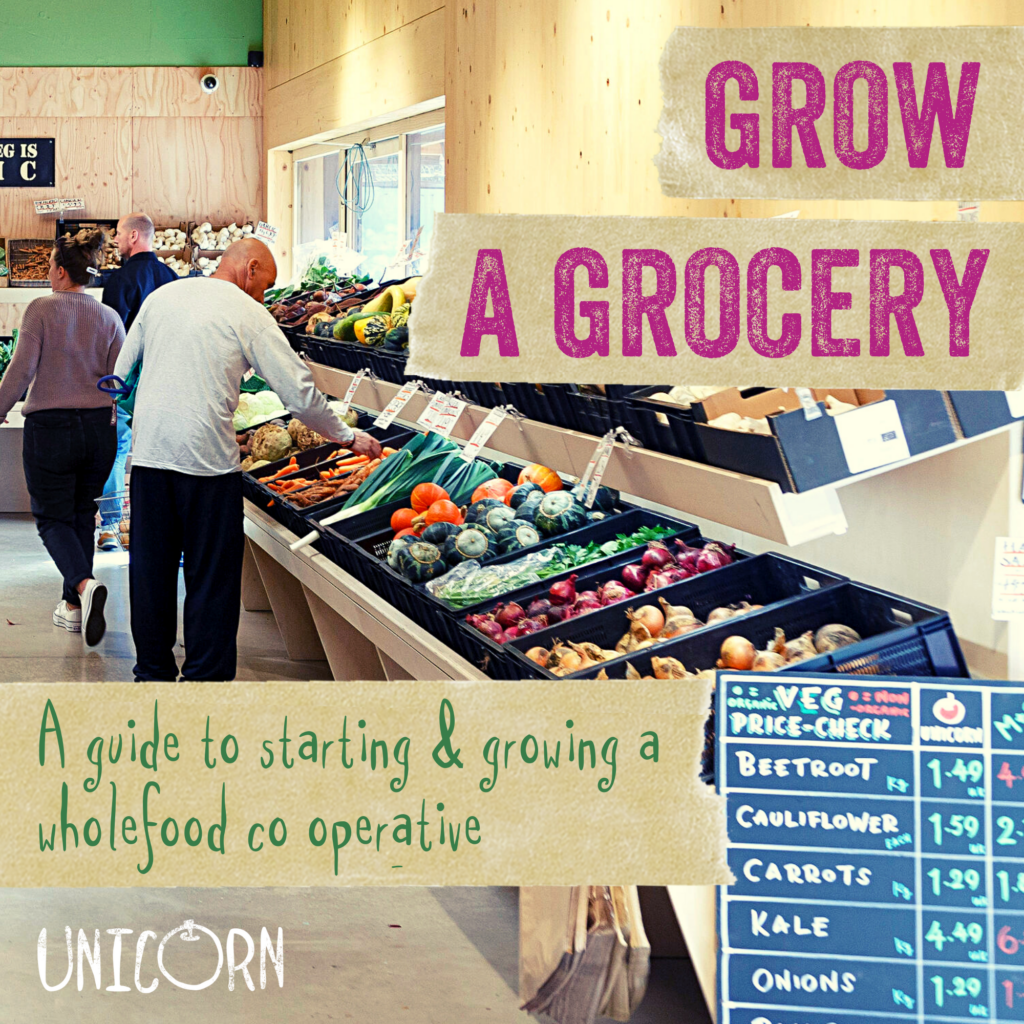
Although touted more as an independent and affordable plant-based co-operative supermarket, Unicorn Grocery could fairly also be called a zero waste shop too.
As well as giving fairly paid jobs to local people and offering mostly locally-grown and sourced items, it offers discounts on unpacked ‘hoppers’ stocked with grains, pulses and nuts that you fill up yourself, and also for loose fruits and vegetables.
If you forget your own bags or containers, there is a customer jar collection by the tills, with boxes from their veg deliveries to carry your shopping home. The store also runs a bag deposit scheme, and is happy to take small loose and fruits and vegetable purchases at the till.
Again, this store offers a free Grow a Grocery guide, for anyone inspired to do the same. It has no plans to expand into a multi-chain company, but wishes to help others wanting to build local thriving zero-waste plant-based grocery stores.
Forrist: A Online Zero Waste Grocery

Forrist (use coupon FORXENGLAND20 for 25% off pantry items – minimum purchase £40), a zero waste online food supermarket, changes the way people buy food. Choose from a wide range of organic groceries including:
- Grains and pulses
- Rice and pasta
- Nuts and seeds
- Flour and baking ingredients
- Herbs and spices
Just select what you need, in the quantities you need. Then everything is weighed in a paper bag. So you are paying for the food, not the packaging. And not only is all the packaging easy-to-recycle (including glass jars and bottles for household goods), you have the added option of sending back empty packaging, to get them refilled.
The Waste Savers Mystery Box lets you get further discounts, by ordering items approaching or past their best-before date.
Best-before dates are about quality, so the food should be safe to eat if eaten up quickly, it may just be a bit ‘past its best’ (for instance, spices may not be quite as spicy!)
Each box contains a mix of products that are discounted from 30% to 70%. The box size obviously depends on the range of products available.
You can also buy subscription boxes, and hampers that make nice gifts for you or someone you care about. You can email a copy of your student or higher education ID, to receive a 10% discount.
Forrist sends every order in fully recyclable or compostable packaging. There’s no single-use plastic involved. From brown paper bags to reusable jars, every item you order gets delivered in a way that won’t add to landfill problems. You can even return packaging to Forrist when it’s no longer needed.
You’ll find almost every pantry staple you need, from organic pasta and rice to herbs, spices, and nuts. Forrist covers all your basic vegan and gluten-free choices.
Forrist lets you choose quantities that match your needs. Order 100g or a kilo – it’s up to you. This feature means you don’t end up with more food than you’ll use, which helps cut food waste and saves money.


